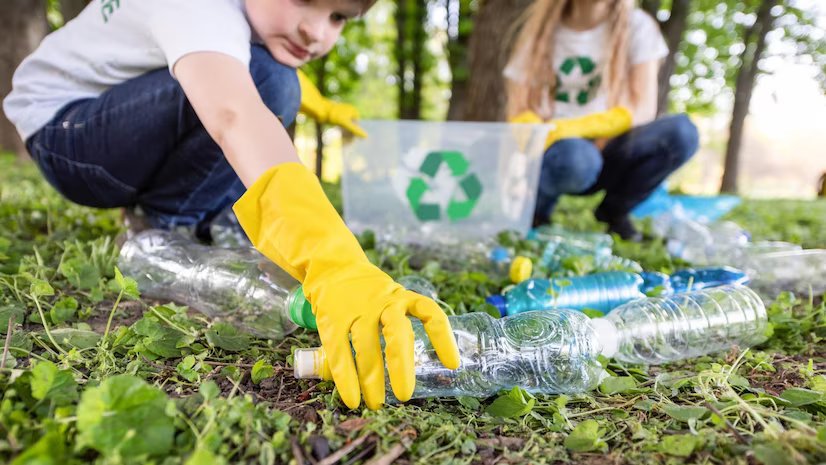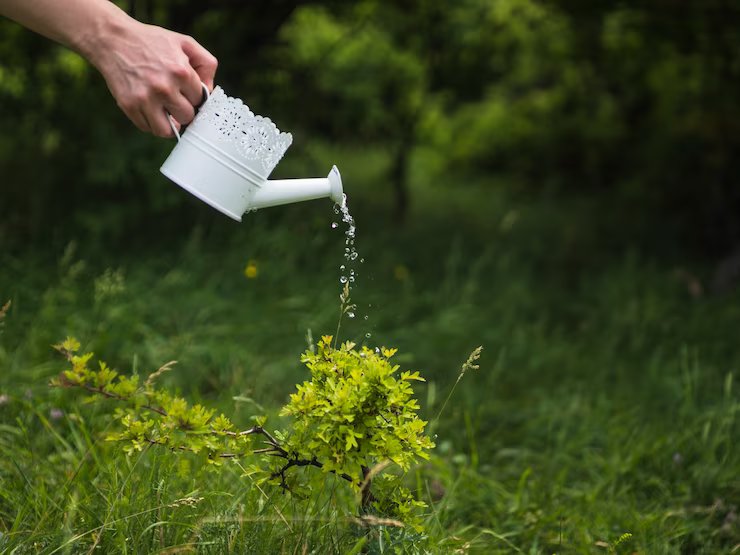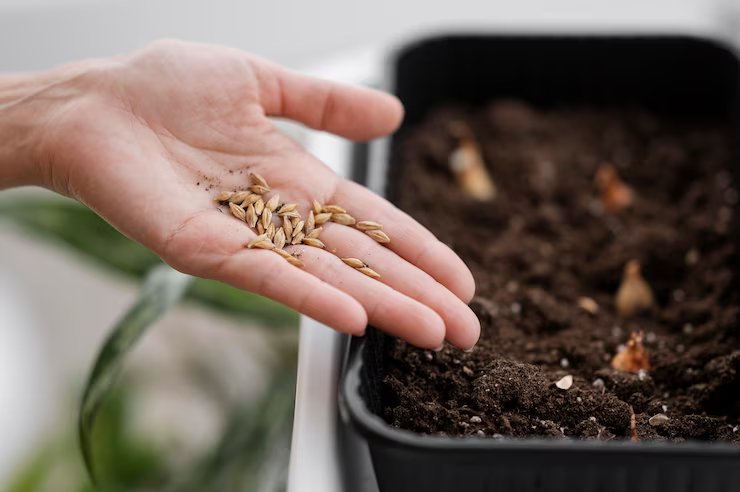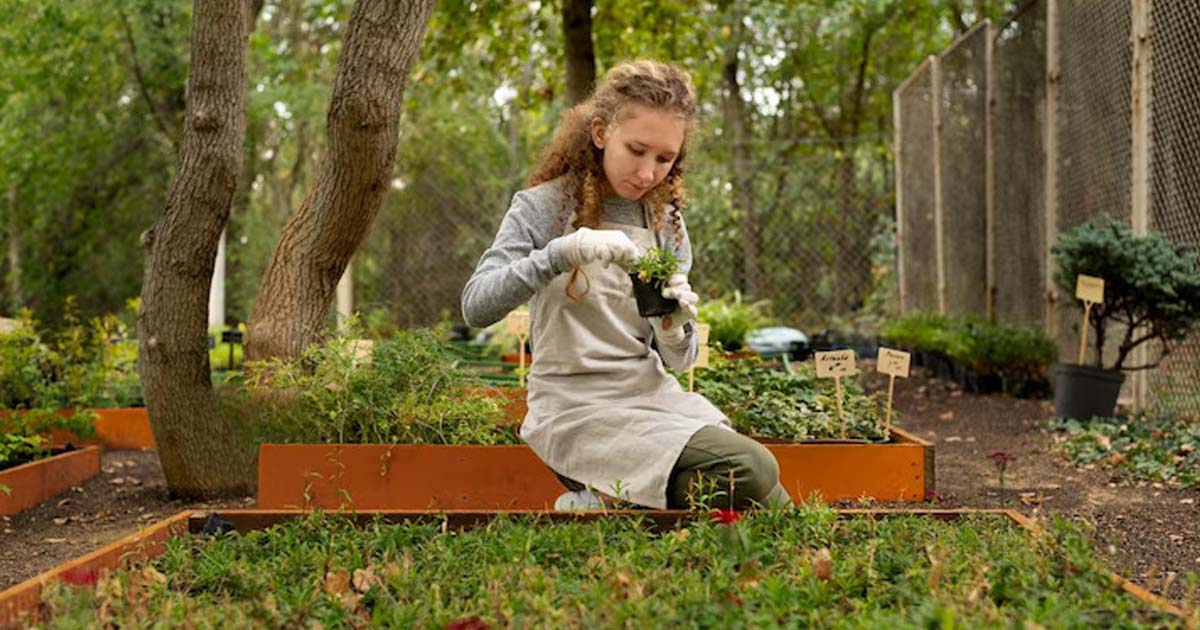Sustainable gardening is an effective way to lower your carbon footprint and contribute to a healthier environment. One key aspect of eco-friendly gardening is using natural alternatives for pesticides that won’t harm both the environment and plants alike. Conserving water is also key, using methods like rain barrels to collect rainwater or planting drought-tolerant species and watering early morning or late evening when the sun isn’t as intense.
Composting should also be part of your gardening practices – this eco-friendly tip reduces waste while providing nutrients-rich soil for your garden. By adopting these eco-friendly measures into your gardening practices, you can contribute towards building a healthier and more sustainable world.
1. Soil Testing

Sustainable gardening can be an excellent way to lower your carbon footprint and create beautiful outdoor spaces, one of which involves maintaining healthy soil. Soil testing is a critical element of this practice as it determines fertility levels in your soil as well as any potential issues or deficiencies that need addressing with organic fertilizers. By performing regular soil tests you can identify where nutrients may be lacking from your garden soil and replenish them using natural methods.
Additionally, compost can enhance soil structure and help retain water, while selecting native plants adapted to your local climate may require less water and maintenance than non-native varieties. Furthermore, rain barrels can help conserve water for your garden and lower your water bill significantly – creating a sustainable garden that is both beautiful and good for the environment. By following these eco-friendly tips you can achieve a stunning outdoor oasis.
2. Stick To Organic

Sustainable gardening involves cultivating plants and crops in such a way as to conserve and protect the environment, with one key aspect being using eco-friendly practices such as organic methods. Organic gardening forgoes using synthetic chemicals that could harm both wildlife and the environment in favor of natural methods such as composting, companion planting and crop rotation.
Organic gardening techniques allow gardeners to produce healthy, organic produce without harming the environment, while supporting local ecosystems by providing habitats for insects, birds and wildlife that benefit local ecologies. If you want to practice sustainable gardening then organic methods will do more than any other to protect our planet than any other form of cultivation will.
3. Landscape Mulch

Sustainable gardening involves more than creating beautiful landscapes; it also involves taking care of our environment. One eco-friendly practice to achieve this is using landscape mulch. Landscape mulch is an environmentally-friendly alternative to traditional mulch made of organic materials like leaves, grass clippings and wood chips that has proven its environmental credentials.
Landscape mulch is an effective way to reduce waste sent to landfills and save water through reduced evaporation. Furthermore, landscape mulch helps manage erosion, suppress weeds and regulate temperature regulation for your garden, creating a sustainable ecosystem that is both beautiful and eco-friendly.
4. Native Plants

Sustainable gardening is an effective way to help preserve natural resources. One great way to do this is through native plant gardening; native species thrive in local environments and require less care, water use and pesticide application than non-native varieties; additionally they provide food and shelter to local wildlife while helping sustain biodiversity. Compost and natural fertilizers may also contribute towards more eco-friendly gardening.
Other eco-friendly practices to consider are rainwater harvesting techniques, decreasing plastic and synthetic material usage and using less power tools – adopting these practices will enable you to create an exquisite yet sustainable garden which benefits both you and the planet.
5. Include Flowers

Sustainable gardening is an effective way to foster a greener environment. Adopting eco-friendly practices allows you to craft an aesthetically pleasing garden while being kind to our planet. Flowers add color, fragrance and beauty to any garden; one way of doing this is including them; however it is key that these flowers be chosen wisely so as not to damage the planet further.
Native flowers and plants are ideal, as they’re tailored specifically for your climate, need less watering, and maintenance costs are reduced significantly. Organic fertilizers and compost provide great alternatives to synthetic ones as they’re free from toxic chemicals while being more eco-friendly. If you follow these eco-friendly tips you can create a garden that not only looks stunning but also helps preserve our planet!
6. Waste Water Recycling

Sustainable gardening is an effective way to lower our carbon footprint and create a healthier environment. Through adopting eco-friendly practices, we can reduce waste while conserving natural resources – one such practice being waste water recycling. Instead of letting domestic water drain down our drains unnecessarily, it can instead be recycled back into our gardens, saving water while simultaneously reducing pollution to waterways. For an effective greywater system to work effectively.
Additionally, organic fertilizers and compost can help nourished our soil while decreasing chemical fertilizer use. By making small changes such as these we can create a sustainable garden that not only looks stunning but is good for the environment as well.
7. Use Less Water

Sustainable gardening begins with conserving as much water as possible – one essential eco-friendly tip is using less water. Water is an invaluable commodity, and with growing concerns of scarcity it’s crucial that as much as possible is saved. A great way of doing this is choosing drought-resistant plants which require minimal irrigation; you could also collect rainwater using a rain barrel and use that instead.
Mulching garden beds to retain moisture and reduce evaporation is another effective strategy, while using drip irrigation systems instead of sprinklers can significantly lower water wastage. By following these eco-friendly gardening techniques you’ll not only conserve water but also create a sustainable garden in harmony with nature.
8. Cultivate Your Food

Cultivating food at home is an empowering, eco-friendly way to contribute to a more sustainable future. As more of us recognize the impact our actions are having on the environment, adopting eco-friendly practices like sustainable gardening is increasingly necessary – here are some tips on making your gardening practices more eco-friendly! First and foremost: select organic seeds and fertilizers free from harmful chemicals.
Use compost and natural fertilizers to enhance soil health and promote sustainable plant growth, then conserve water through drip irrigation and rainwater harvesting techniques. Thirdly, utilize natural methods for pest control such as companion planting or introducing beneficial insects; fourthly select native plants suited to your local climate that require minimal care and upkeep; finally consider opting for local species for reduced water usage and maintenance needs. Adopting these eco-friendly tips will not only help you cultivate food but will contribute towards creating a healthier planet!
9. Seed Saving

Seed Saving One of the best ways to practice sustainable gardening is incorporating seed saving into your routine. By harvesting the seeds from your plants and saving them each year, seed saving can save money and waste while simultaneously decreasing costs and consumption of new seeds each year. To start seed saving, select healthy plants well-suited to your growing conditions before allowing them to go to seed before collecting once dry; store in cool and dry place until ready to plant them out again.
Consider ways to minimize water usage such as collecting rainwater in barrels or using drip irrigation, choosing native plants which require less fertilizer and water consumption, and choosing water-efficient varieties when planting your garden. By adopting eco-friendly strategies such as these, you can create a sustainable garden that benefits both the environment and wallet alike.
10. Lawn Care
As more people become conscious of their impact on the environment, eco-friendly gardening practices have gained increasing traction. One key aspect of sustainable gardening practices is lawn care: instead of using harsh chemicals like herbicides or synthetic fertilizers to maintain an ideal lawn, consider opting for natural solutions such as compost and organic fertilizers instead.
Reducing the size of your lawn or replacing it with native plants can have a dramatic impact on the environment, as can composting, using rainwater instead of tap water and forgoing pesticides altogether. By adopting these eco-friendly gardening practices you can create an environmentally-friendly garden that’s also enjoyable and healthy for yourself and your family!
Conclusion
Today’s world has made sustainable gardening practices even more essential than before. Our planet is facing serious environmental threats and every effort to reduce carbon emissions counts towards making our world greener. Luckily there are eco-friendly tips for sustainable gardening that can help us all do our part – for instance using natural and organic fertilizers instead of chemical ones can reduce toxins released into the environment and save the Earth!
Utilizing rainwater can help cut back on water usage and save money on your utility bill, while selecting native species can support ecosystems while decreasing pesticide and herbicide usage. By following these sustainable gardening practices and adopting others such as composting or mulching your garden can have a positive impact while still offering beautiful blooms that bring beauty and bounty into the world.
Also Refer : 10 Essential Tips For Planning And Starting A Garden In Your Backyard


